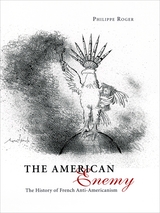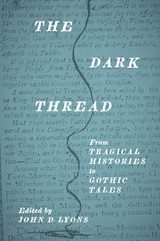2 books by Roger, Philippe

The American Enemy
The History of French Anti-Americanism
Philippe Roger
University of Chicago Press, 2005
Georges-Louis Buffon, an eighteenth-century French scientist, was the first to promote the widespread idea that nature in the New World was deficient; in America, which he had never visited, dogs don't bark, birds don't sing, and—by extension—humans are weaker, less intelligent, and less potent. Thomas Jefferson, infuriated by these claims, brought a seven-foot-tall carcass of a moose from America to the entry hall of his Parisian hotel, but the five-foot-tall Buffon remained unimpressed and refused to change his views on America's inferiority.
Buffon, as Philippe Roger demonstrates here, was just one of the first in a long line of Frenchmen who have built a history of anti-Americanism in that country, a progressive history that is alternately ludicrous and trenchant. The American Enemy is Roger's bestselling and widely acclaimed history of French anti-Americanism, presented here in English translation for the first time.
With elegance and good humor, Roger goes back 200 years to unearth the deep roots of this anti-Americanism and trace its changing nature, from the belittling, as Buffon did, of the "savage American" to France's resigned dependency on America for goods and commerce and finally to the fear of America's global domination in light of France's thwarted imperial ambitions. Roger sees French anti-Americanism as barely acquainted with actual fact; rather, anti-Americanism is a cultural pillar for the French, America an idea that the country and its culture have long defined themselves against.
Sharon Bowman's fine translation of this magisterial work brings French anti-Americanism into the broad light of day, offering fascinating reading for Americans who care about our image abroad and how it came about.
Buffon, as Philippe Roger demonstrates here, was just one of the first in a long line of Frenchmen who have built a history of anti-Americanism in that country, a progressive history that is alternately ludicrous and trenchant. The American Enemy is Roger's bestselling and widely acclaimed history of French anti-Americanism, presented here in English translation for the first time.
With elegance and good humor, Roger goes back 200 years to unearth the deep roots of this anti-Americanism and trace its changing nature, from the belittling, as Buffon did, of the "savage American" to France's resigned dependency on America for goods and commerce and finally to the fear of America's global domination in light of France's thwarted imperial ambitions. Roger sees French anti-Americanism as barely acquainted with actual fact; rather, anti-Americanism is a cultural pillar for the French, America an idea that the country and its culture have long defined themselves against.
Sharon Bowman's fine translation of this magisterial work brings French anti-Americanism into the broad light of day, offering fascinating reading for Americans who care about our image abroad and how it came about.
“Mr. Roger almost single-handedly creates a new field of study, tracing the nuances and imagery of anti-Americanism in France over 250 years. He shows that far from being a specific reaction to recent American policies, it has been knit into the very substance of French intellectual and cultural life. . . . His book stuns with its accumulated detail and analysis.”—Edward Rothstein, New York Times
“A brilliant and exhaustive guide to the history of French Ameriphobia.”—Simon Schama, New Yorker
“A brilliant and exhaustive guide to the history of French Ameriphobia.”—Simon Schama, New Yorker
[more]

The Dark Thread
From Tragical Histories to Gothic Tales
John D. Lyons
University of Delaware Press, 2011
In The Dark Thread, scholars examine a set of important and perennial narrative motifs centered on violence within the family as they have appeared in French, English, Spanish, and American literatures. Over fourteen essays, contributors highlight the connections between works from early modernity and subsequent texts from the eighteenth through the twentieth centuries, in which incidents such as murder, cannibalism, poisoning, the burial of the living, the failed burial of the dead, and subsequent apparitions of ghosts that haunt the household unite “high” and “low” cultural traditions. This book questions the traditional separation between the highly honored genre of tragedy and the less respected and generally less well-known genres of histoires tragiques, gothic tales and novels, and horror stories.
Published by University of Delaware Press. Distributed worldwide by Rutgers University Press.
Published by University of Delaware Press. Distributed worldwide by Rutgers University Press.
[more]
READERS
Browse our collection.
PUBLISHERS
See BiblioVault's publisher services.
STUDENT SERVICES
Files for college accessibility offices.
UChicago Accessibility Resources
home | accessibility | search | about | contact us
BiblioVault ® 2001 - 2024
The University of Chicago Press









